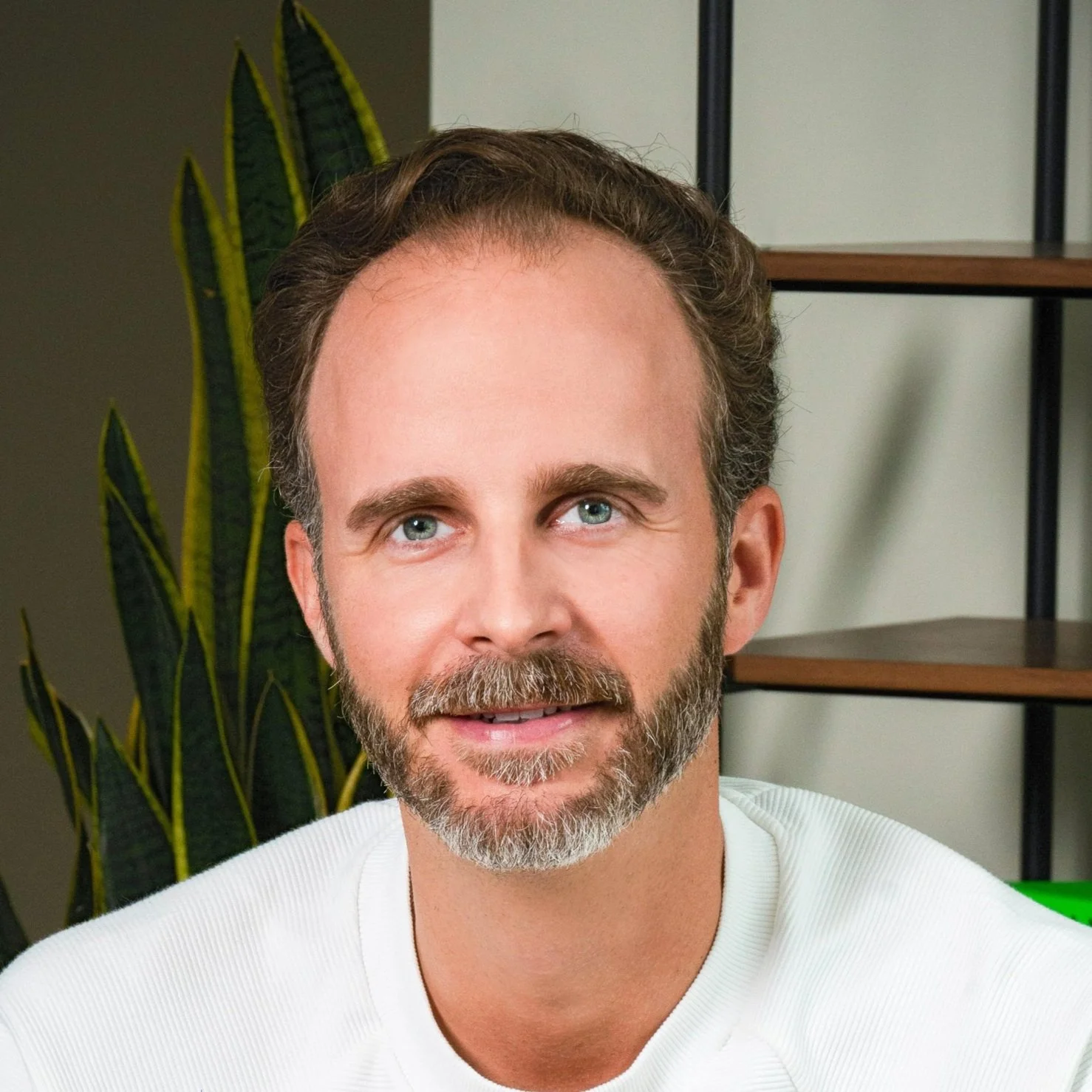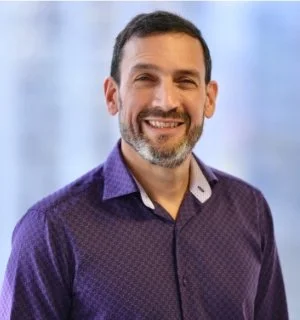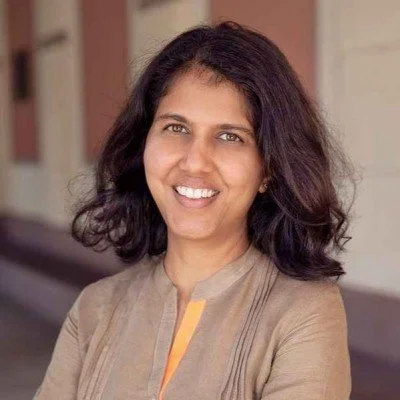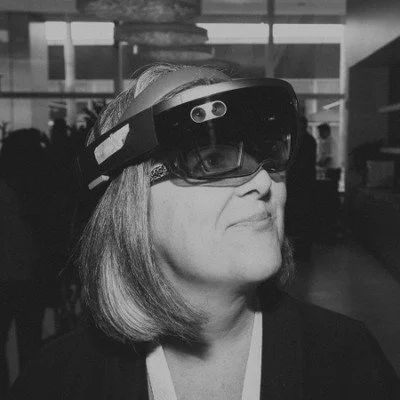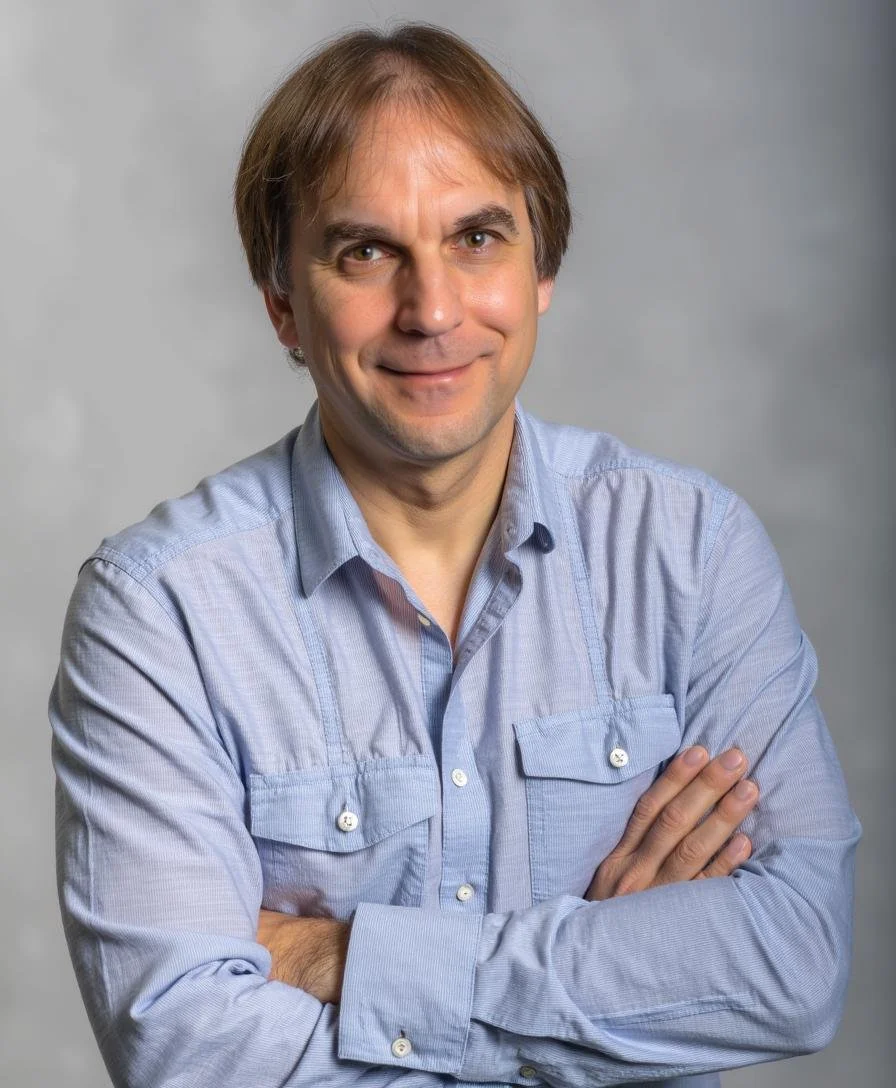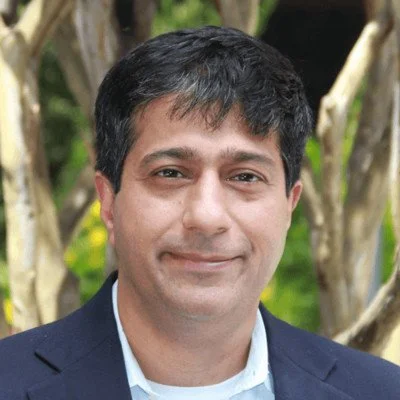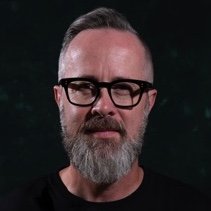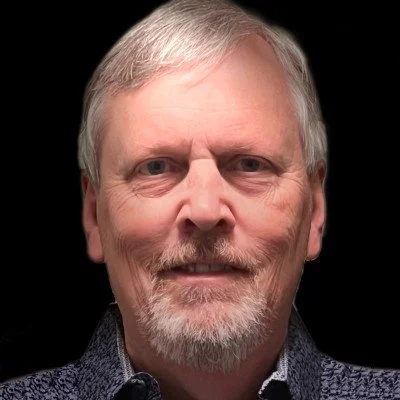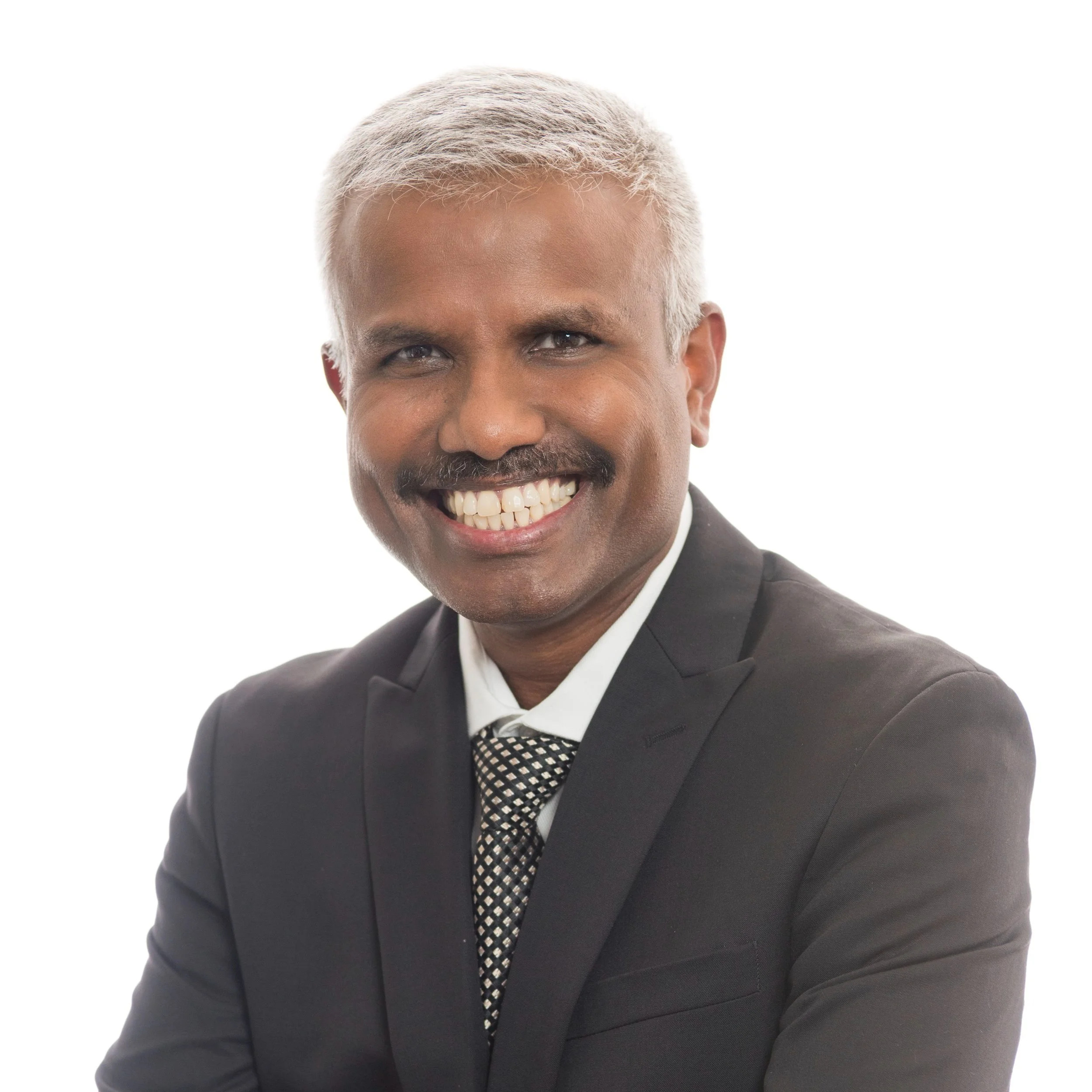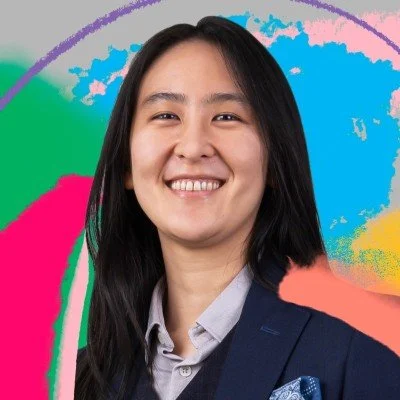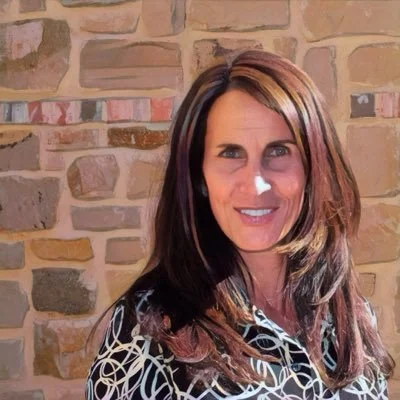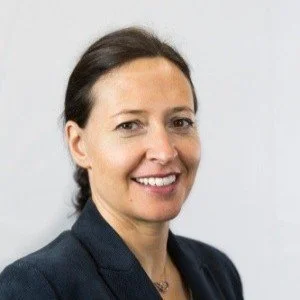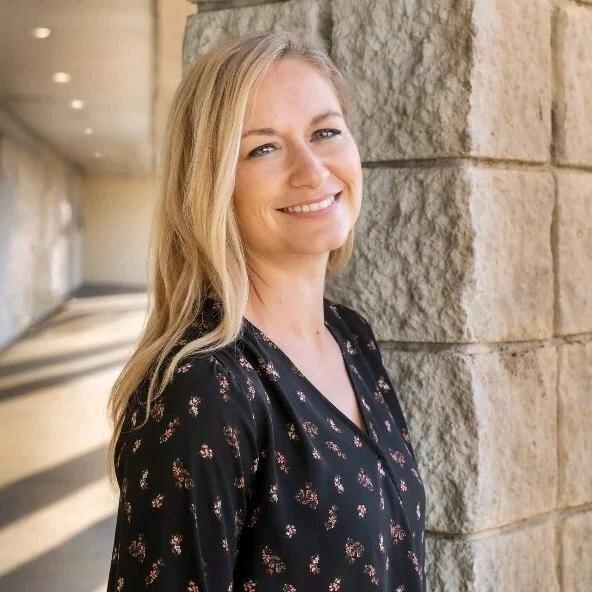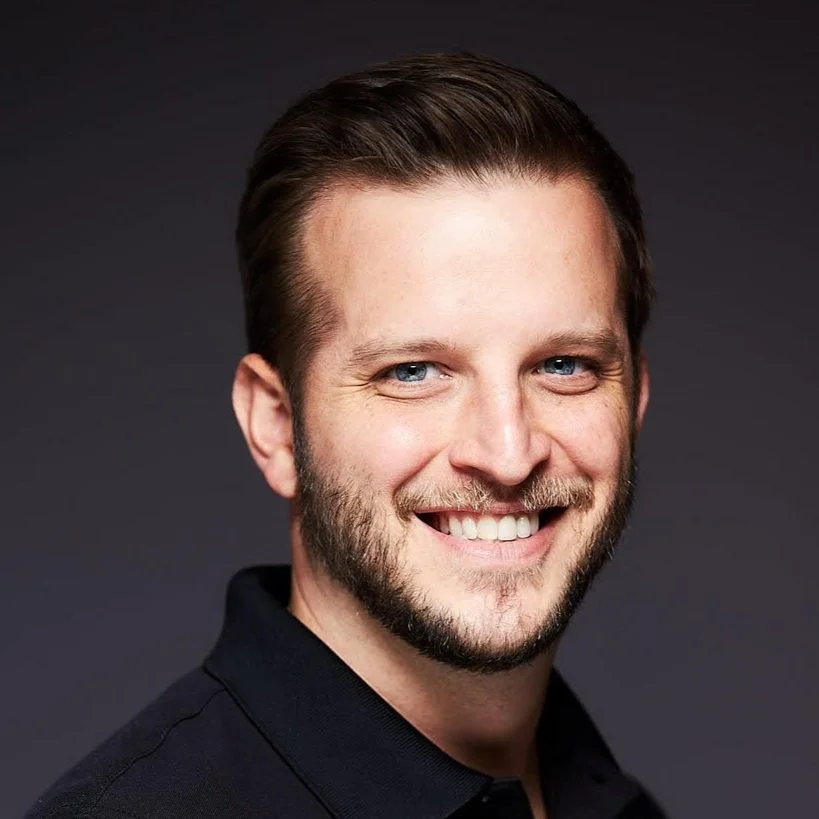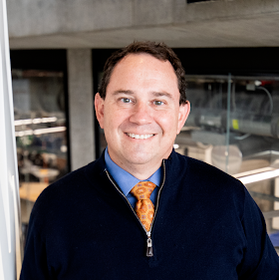Events
The Austin Forum hosts three types of events each month, an in-person presentation + networking event, an online discussion event, and an in-person meetup. Anyone can join these events to interact, share ideas, and collaborate with speakers and fellow attendees.


Grow Your Spheres of Influence—and Your Career, Organization, and Impact
Event Summary
Join us for this free, one-hour interactive workshop to improve your professional relationships; your "spheres of influence"—led by author, long-time technology consultant, Chief Information Officer, and Austin Forum Champion, Brad Englert.
Who Should Attend? People looking to strengthen collaboration skills and exert one's positive influence in the workplace.
Transcend superficial and transactional networking: this workshop dives into how to forge meaningful connections that fuel career and business growth over years and even decades. Learn how to positively influence those closest to you—your boss, direct reports, executive leaders, and all staff; as well as those in your wider sphere of influence—customers, peers and influencers, and strategic vendor partners. Through storytelling, humor, and crunchy real-world examples applicable to all organizations, you'll gain pragmatic insights as how to strengthen your business relationships.
Key Takeaways
Learn how to build business relationships with purpose, discover how to move beyond "me first" small talk towards strategic and intentional conversations, communicate clearly and often to set and align expectations, and earn trust by delivering value and following through.
Teamwork, collaboration, partnerships, and professional relationships are crucial for maximizing success through innovation, execution, and building your career. As disruptive technologies, such as AI, are rapidly transforming the nature of work and our roles as humans in the workplace evolve, it is even more important than ever to focus on how to create and nurture authentic business relationships.
Host
Brad Englert is the founder of Brad Englert Advisory and an author, advisor, and technologist. Brad worked for Accenture for 22 years, including 10 years as a partner. He then served The University of Texas at Austin for eight years, including seven years as the chief information officer (CIO). During Brad’s career with Accenture, a global management consulting and technology services firm, he worked in a variety of information technology leadership and operational roles for large, complex institutions of higher education, state governments (Texas, California, Minnesota, Montana), and commercial organizations (Best Buy, Caterpillar, Whirlpool, Bell South, Deutsche Bank, and Wyeth). When Brad retired as a senior partner in 2006, he had a proven track record in information technology operations, large-scale information systems implementations, and strategic planning.
Attendance Instructions
All participants must register for this event via Eventbrite. This will be an in-person event held at Capital Factory in the Astro-Boy Room (1st Floor).
Parking information can be found here.

Discussion of "Superagency" by Reid Hoffman and Gene Beato
Agenda
7:15 - 8:30 p.m. Discussion
Event Summary
Superagency explores how today’s largest tech companies—like Google, Microsoft, and Meta—have reached a scale where their decisions profoundly shape society, granting them unprecedented power and influence. Reid Hoffman and Gene Beato argue that with this “superagency” comes a responsibility to act ethically, transparently, and with deep consideration for societal impact. The book challenges the notion that technology is neutral and calls for a new kind of leadership that prioritizes trust, fairness, and long-term societal well-being. Ultimately, Superagency is a hopeful call to action, urging tech leaders—and all of us—to harness innovation not just for profit, but for the greater good.
Join the Austin Forum on Technology & Society for an engaging and thought-provoking online discussion of Superagency. Executive Director Jay Boisseau will moderate this community conversation as we explore the key ideas and implications presented in the book, and what they mean for technology’s role in society.
Reading the book in advance is strongly encouraged to ensure a high-quality, effective conversation—but all are welcome to participate.
Space is limited, so please register only if you’re confident you can attend—and kindly cancel your registration if your plans change so we can open your spot to another participant.
Attendance Instructions
Online via Google Meet
Once you register via Ticketbud, you will receive the direct link in your confirmation email. You will also receive the link in a reminder email one day before the event.

Black Mirror & AI: Reality Check - A Special Austin Forum Screening & Panel
Event Summary
Join the Austin Forum for a thought-provoking evening exploring the chilling realities and potential futures depicted in the hit series "Black Mirror," specifically focusing on the episodes "Be Right Back" and "Jane Is Awful."
We'll screen these two captivating episodes that delve into the complex relationship between humans and AI, raising profound questions about grief, identity, and the ethical implications of rapidly advancing technology.
Following the screenings, we'll host a dynamic panel discussion featuring leading AI professionals who will unpack the depictions of AI presented in the episodes. We'll explore:
What is or might be possible soon? Separating science fiction from near-future reality.
Do these episodes represent valid concerns about the future of AI? Discussing the ethical and societal implications raised.
The potential impact of AI on our lives: Examining the broader themes presented in the episodes and their relevance to our present and future.
And more! Audience Q&A will be a key part of the panel discussion.
This special event provides a unique opportunity to engage with complex questions surrounding AI in a relaxed and engaging setting. Whether you're a "Black Mirror" fan, an AI enthusiast, or simply curious about the future of technology, this event will leave you with much to ponder.
Moderators
Numa Dhamani, Head of Machine Learning, iVerify
Numa Dhamani is the Head of Machine Learning at iVerify and the co-author of Introduction to Generative AI (Manning Publications). She is a natural language processing expert with domain expertise in trust, safety, and security. Numa has developed machine learning systems for Fortune 500 companies and social media platforms, as well as for start-ups and nonprofits. She has advised industry leaders and organizations, served as the Principal Investigator on the United States Department of Defense’s research programs, and contributed to multiple international peer-reviewed journals. She is also deeply engaged in the technology policy space, supporting think tanks and nonprofits with data and AI governance efforts. In addition to her industry and research contributions, she has taught AI courses as an adjunct lecturer at the University of Texas at Austin and Georgetown University. Numa is passionate about working toward a safer digital ecosystem, building responsible artificial intelligence, and advocating for transparency and accountability in technology. She holds degrees in Physics and Chemistry from the University of Texas at Austin.
Adam Ghetti, Adapter
As an entrepreneur, investor, and creator, Adam has been involved in numerous ventures over the years. As the Founder of Ionic Security, he has been recognized by Forbes as a 30-under-30 thought leader in technology and by the World Economic Forum as a Technology Pioneer. Additionally, he served on the inaugural Global Future Council on Cybersecurity on behalf of the World Economic Forum.
Steve Kramer, KUNGFU.AI
Dr. Steve Kramer, Chief Scientist of KUNGFU.AI, is a computational physicist and data science entrepreneur with 32 years of post-Ph.D. experience in AI, data science, research, software, and business management. He earned a Ph.D. in physics in the Center for Nonlinear Dynamics at The University of Texas at Austin. Steve has extensive research experience spanning data mining, machine learning, anomaly detection, bot/cyborg detection, clustering, network graph analysis, deep learning, spatiotemporal forecasting, predictive analytics, social media analytics, and pattern discovery/recognition. In 2014, he patented a robust method for dynamic anomaly detection based on chaos theory. Steve spoke at Data Day Texas in 2014 and 2018 and at Data Day Seattle in 2016. Since 2011, he has served as a program committee member and reviewer for the ACM KDD and IEEE Security and Intelligence Informatics conferences. He recently acted as the Principal Investigator on multiple subcontracts for DARPA's Information Innovation Office and on multiple prototype contracts for the Defense Innovation Unit (DIU). He is proud to serve on the Board of the Austin Forum on Technology and Society and as a member of Board of Technical Advisors for data.world.

Boost Your Coding Productivity: An Introduction to AI-Powered Development Workshop
Event Summary
Code generation tools can give one developer the power of five. While software engineers still need to design the algorithms, AI can now do 90% of the boilerplate, copy-and-paste style coding that eats up so much time. In this workshop, Edward Cates and Nathan Mandi, two Senior Machine Learning Engineers at KUNGFU.AI, will show you how to build beautiful websites with alarming speed through the use of Windsurf, an open-source AI-powered development environment (similar to Cursor AI). If you're a developer who hasn't yet tried adding AI to your workflow, this session is first and foremost for you!
What You'll Experience:
Lightning-Fast UI Generation: See a professional-quality front-end user interface generated in mere minutes.
Automated Backend API Creation: Watch as a functional backend API is created for real-world data utilization.
Ready to participate? Please come prepared by installing either Windsurf (free) or Cursor AI (paid with a free tier) on your system. Don't miss this opportunity to revolutionize your coding efficiency!
Moderators
Edwards Cates, KUNGFU.AI
Edward Cates was a Software Engineer for many years before getting a Masters in Machine Learning from Georgia Tech. He and three friends operated a freelance web app business while he got his degree in Electrical and Computer Engineer at UT Austin. Before joining KUNGFU.AI, Edward was the technical Co-founder of Grocery TV, which has advertising displays in over 5,000 stores across the country. Now, he’s fully focused on AI & ML, coupling his exhaustive software and deployment experience with the latest advances in deep learning.
Nathan Mandi, KUNGFU.AI
Nathan Mandi studied Electrical Engineering and Computer Science at UC Berkeley before joining the autonomous vehicle company, Cruise Automation, where he spent three years building core prediction algorithms, designing evaluation metrics, and training models. After a stint as an independent AI consultant, Nathan joined KUNGFU.AI, where he has worked across a wide range of machine learning domains and industries. He’s been especially focused on RAG and practical LLM tool development—well before the current wave of agentic AI hype. Nathan is also interested in climate tech, and AI for education.
Attendance Instructions
Online via Google Meet
Once you register via Eventbrite, you will receive the direct link in your confirmation email. You will also receive the link in a reminder email one day before the event.

Discussion of "Artificial Integrity" by Hamilton Mann
Agenda
7:15 - 8:30 p.m. Discussion
Event Summary
Join the Austin Forum for an engaging online discussion of "Artificial Integrity: The Paths to Leading AI Toward a Human-Centered Future" with the author himself, Hamilton Mann! In this thought-provoking book, Mann introduces the transformative concept of "Artificial Integrity," a framework that emphasizes the importance of ethical and human-centered AI development.
This interactive session will delve into the book's key themes, including:
The limitations of traditional ethical frameworks in addressing the complexities of AI.
The importance of aligning AI with human values and societal norms.
Practical strategies for designing, implementing, and continuously aligning AI development to responsibly advance human and artificial co-intelligence.
Hamilton Mann will moderate the discussion, offering his unique insights and answering audience questions. Don't miss this opportunity to explore a critical issue surrounding AI—Integrity over Intelligence—and learn how to shape a future where AI enhances, rather than replaces, human capabilities.
Attendance Instructions
Online via Google Meet
Once you register via Eventbrite, you will receive the direct link in your confirmation email. You will also receive the link in a reminder email one day before the event.
Moderator
Hamilton Mann
Hamilton Mann is a Tech Executive, Digital and AI for Good Pioneer, Keynote Speaker, and the originator of the concept of Artificial Integrity. He serves as Group Vice President at Thales, where he co-leads the AI initiative and Digital Transformation while also overseeing global Digital Marketing activities. He also serves as a Senior Lecturer at INSEAD and HEC Paris as well as a mentor at the MIT Priscilla King Gray (PKG) Center. He is a doctoral researcher in AI at École Nationale des Ponts et Chaussées - Institut Polytechnique de Paris. He writes regularly for Forbes as an AI columnist and has published articles about AI and its technological and societal implications in prominent academic, business, and policy outlets such as Stanford Social Innovation Review (SSIR), Knowledge at Wharton, Leader to Leader (Wiley), Dialogue Duke Corporate Education, INSEAD Knowledge, the Harvard Business Review France and the European Business Review. He hosts The Hamilton Mann Conversation, a podcast on Digital and AI for Good, ranked in the Top 10 for technology thought leadership by Technology Magazine. He was inducted into the Thinkers50 Radar as one of the 30 most prominent rising business thinkers globally.

Unlocking Generative AI's Potential: A Prompt Engineering Workshop
Event Summary
In this hands-on workshop, led by renowned AI expert Numa Dhamani, you'll learn the art and science of prompt engineering, a crucial skill for harnessing the power of generative AI tools.
We'll dive into the latest, most powerful features of these tools, exploring how to craft effective prompts that:
Generate high-quality outputs: Learn to guide AI models toward the exact results you desire, whether it's creative content, code, or data analysis.
Control output format and style: Master techniques to influence the tone, style, and structure of the generated content.
Improve efficiency and productivity: Discover how to streamline your workflows and automate tasks using generative AI.
This workshop is perfect for:
Professionals seeking to enhance their skills in AI and data science.
Business leaders looking to leverage AI for competitive advantage.
Anyone interested in understanding and utilizing the transformative power of generative AI.
Attendees should bring their own laptops (fully charged) to participate in interactive exercises.
Attendance Instructions
All participants must register for this event via Eventbrite. This will be an in-person event held at Capital Factory in the Antone Room, 16th Floor.
Parking information can be found here.

Best LLM & GenAI Pro Tips, Tricks, and Hacks
Event Summary
Show us your skills! Share your knowledge with others!
Chatbots, LLMs, and generative AI (GenAI) tools in general are adding features rapidly and have become powerful tools capable of teaching, translating, summarizing, analyzing, and even reasoning. LLMs in 2025 are more than party tricks—these are tools that can change your life if you learn how to use them powerfully. Join us for a meetup to share your expertise, demos, and tips to help others increase their effective usage of LLMs and/or watch and listen to others share their pro tips! Bring your devices to show how to get the most out of these tools and try new things out. You’ll become a powerful (or, more powerful) LLM user by 8 pm!
Host
Jay Boisseau, Executive Director, Austin Forum on Technology & Society and CEO, Vizias
Jay Boisseau is an experienced, recognized leader and strategist in advanced computing technologies, with over 25 years in the field. Jay is the executive director and founder of The Austin Forum on Technology & Society, which he created in 2006 and is the leading monthly technology outreach and engagement event in Austin--and now attracts national and international attendees online. The Austin Forum is one of the pillars of the Austin tech scene, providing connections to information, ideas, collaborations, and community overall. In addition, Jay is CEO, co-founder (June 2014), and a partner in Vizias, a small team of passionate professionals with expertise in high-performance computing (HPC), artificial intelligence (AI), technology community building, and technology outreach & event planning. Vizias staff lead, execute, and support the Austin Forum through Vizias Research, Education, and Outreach, a non-profit dedicated to using technology for positive social impact. Jay has held previous leadership positions at Dell Technologies, the Texas Advanced Computing Center (TACC) at The University of Texas at Austin, the San Diego Supercomputer Center and the Arctic Region Supercomputing Center. He received his doctorate in astronomy from UT Austin, and his undergraduate degree in astronomy and physics from the University of Virginia. For Jay's full professional bio, visit here.
Attendance Instructions
All participants must register for this event via Eventbrite. This will be an in-person event held at Capital Factory in the ACL Room, 16th Floor.
Parking information can be found here.
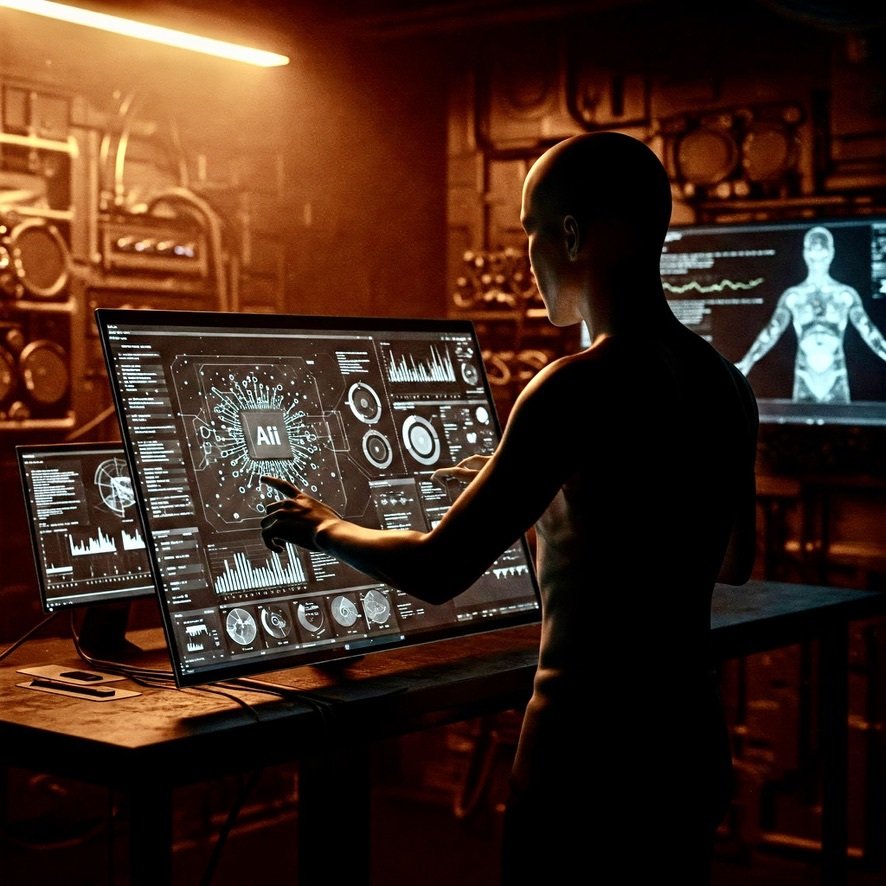

Discussion of "The Last Human Job" by Allison Pugh
Agenda
7:15 - 8:30 p.m. Discussion
Event Summary
The Austin Forum on Technology & Society invites you to a virtual discussion of "The Last Human Job: The Work of Connecting in a Disconnected World" by Allison Pugh. In her book, Pugh examines the evolving landscape of work and argues that human connection remains an irreplaceable skill in a world increasingly reliant on technology. While machines may excel at an increasing number of tasks, the uniquely human ability to connect with others will be crucial in the future.
Moderated by Dr. Maninder "Mini" Kahlon, this engaging conversation will delve into the critical questions surrounding the future of work in an age of increasing AI and automation, including the essential skills for the future (human) workforce and how individuals and communities should prepare for the changing nature of work.
Join us for a conversation that is sure to be thought-provoking, informative, and perhaps career-changing. As always, we encourage attendees to read the book in advance and contribute to the conversation but welcome anyone who wants to speak up or just listen.
Attendance Instructions
Online via Google Meet
Once you register via Ticketbud, you will receive the direct link in your confirmation email. You will also receive the link in a reminder email one day before the event.
Moderator
Dr. Maninder “Mini” Kahlon, Founder, Beheld
Dr. Maninder “Mini” Kahlon is a systems and behavioral neuroscientist, technology innovator, and medical research leader. She is the founder of beheld, a company translating the science of empathy into tech-enabled, human-centered services for improving health outcomes, with initial focuses on maternal health and diabetes management. Previously, she was the founding Vice Dean of Dell Medical School, where she established a biomedical translational hub and developed the school’s focus on population health. In her research at Dell Med, she led community-based clinical trials exploring innovative interventions for better disease management. Dr. Kahlon earned her PhD in Neuroscience at UCSF and has held leadership roles in large-scale translational science initiatives, software development, and health innovation.

SXSW 2025: Austin Forum Recap - Insights & Innovations
Event Summary
Join us for an exclusive, insider's look at the most exciting and impactful moments from SXSW 2025!
SXSW President Hugh Forrest will moderate a dynamic session where Austin Forum community members share their key takeaways, top highlights, and actionable recommendations gleaned from the diverse range of panels, presentations, and events. Attendees will deliver concise, engaging presentations summarizing the most innovative ideas, emerging trends, and thought-provoking discussions they experienced at SXSW. Following the presentations, attendees will have the opportunity to network, ask questions, and delve deeper into the topics covered, maximizing the value and impact of the SXSW experience for everyone. Don't miss this chance to connect with fellow SXSW attendees, gain valuable insights, and explore the future of technology and innovation!
Host
Hugh Forrest, President, SXSW
Hugh Forrest oversees content for the SXSW Conference, as well as the Music Festival, Film Festival and EDU aspects of the program. Hugh was named “Austinite of the Year” in 2012 by the Austin Chamber of Commerce and in 2014, he and other SXSW Directors were named Austin Entrepreneurs of the Year by Ernst & Young. He recently received an honorary doctorate of humane letters from Kenyon College, his alma mater.
Beyond SXSW, he has served on the National Advisory Board for the Poynter Institute in St. Petersburg, Florida. He is part of the Board of Directors for Austin Habitat for Humanity and also serves on the Board of Directors for the Austin-based accessibility company Knowbility. Before joining the SXSW team, he founded The Austin Challenger and wrote for several other newspapers and publications.
Attendance Instructions
All participants must register for this event via Eventbrite. This will be an in-person event held at Capital Factory in the Captain America room.
Parking information can be found here.


Discussion of "The AI-Driven Leader: Harnessing AI to make faster, smarter decisions"
Agenda
7:15 - 8:30 p.m. Discussion
Event Summary
Join us for an insightful online discussion of "The AI-Driven Leader: Harnessing AI to Make Faster, Smarter Decisions" with the author himself, Geoff Woods! In this timely and relevant book, Woods explores how forward-thinking leaders can leverage the power of artificial intelligence to transform decision-making, boost performance, and drive success in today's rapidly evolving business landscape. This interactive session will delve into the book's key concepts, including practical strategies for integrating AI into leadership practices, overcoming common challenges, and unlocking the full potential of AI-driven insights. Geoff Woods will moderate the discussion, offering his unique perspective and answering audience questions. Don't miss this opportunity to gain valuable insights into the future of leadership and discover how AI can empower you to become a more effective and impactful leader.
Attendance Instructions
Online via Google Meet
Once you register via Ticketbud, you will receive the direct link in your confirmation email. You will also receive the link in a reminder email one day before the event.
Moderator
Geoff Woods, author of “The AI-Driven Leader” and founder of AI Leadership
Geoff Woods is the #1 international bestselling author of The AI-Driven Leader, host of the AI-Driven Leader podcast and the Founder of AI Leadership where he empowers leaders to harness AI, escape operational overwhelm, and think strategically to accelerate growth. As the former Chief Growth Officer of Jindal Steel & Power, his guidance helped their market cap grow from $750 million to over $12 billion in four years. He also co-founded the training and consulting company behind The ONE Thing, where he coached and advised companies with annual revenues from $10 million to $60 billion.


Immersive Tech Meetup—and Demos!
Event Summary
Immersive technologies are reshaping how we communicate, create, and solve problems, leveraging the full power of human sensory and spatial reasoning. Advances in display technology, AI, UX, and human-computer interaction (HCI) are converging to put augmented reality (AR), virtual reality (VR), mixed reality (MR), artificial intelligence (AI) and Internet of things (IoT) into the hands of many. These tools will soon revolutionize not only entertainment but also industries like education, design, training, and simulation.
Join us at Texas Immersive Institute to explore how emerging immersive technologies are not just enhancing our sensory experiences, but also unlocking new ways to engage audiences, tell stories, and design innovative solutions. Led by Professor Erin Reilly, the Texas Immersive team will guide you through hands-on demos of cutting-edge technologies that merge the physical and digital worlds, creating interactive, experiential environments. Talk about the possibilities for new immersive technologies presented by these technologies and what innovations are now possible in different fields. And, maybe, come up with an idea that Texas Immersive can help you translate into a great new research, business, or social impact application using these technologies!
Attendance Instructions
Join us in-person at the Texas Immersive Institute at the University of Texas at Austin. Location details below.
2504 Whitis Ave, Austin, TX 78705
Jesse H. Jones Communication Center
Building A - 5th floor (CMA 5.102)
Street parking available on Dean Keeton and Guadalupe St. or the San Antonio Garage at 2420 San Antonio St, Austin, TX 78705
Moderator
Erin Reilly, Professor of Practice, Stan Richards School of Advertising & Public Relations, Texas Immersive Institute
Erin Reilly is a creator, educator, and strategist. Her career spans more than 20 years, during which she has invented new approaches, products, services, and experiences for storytelling and audience engagement through immersive technology. Erin currently serves as professor of practice in the Stan Richards School of Advertising and Public Relations, as well as founding director of Texas Immersive Institute, the interactive and immersive media hub at the University of Texas at Austin, focused on research, projects, and learning the future of media. Erin is a frequent lecturer at universities and industry conferences throughout the world, including TedX and South by Southwest. She is an executive committee board member of the Infinity Festival, a member of the Academy of Television Arts & Sciences Interactive Media Peer Group, previously served as the board president of National Association for Media Literacy Education, and serves on advisory boards such as SXSW Pitch and PBS children's shows “Hero Elementary” and Emmy-award winning, “Sci Girls.”

Discussion of "The Path to Singularity: How Technology Will Challenge the Future of Humanity”
Agenda
7:15 - 8:30 p.m. Discussion
Event Summary
In a rapidly changing world, are we on the brink of creating technology that outpaces our ability to control it?
Join us for an engaging online discussion with renowned astrophysicist and author J. Craig Wheeler as he explores the key themes of his latest book, "The Path to Singularity: How Technology Will Challenge the Future of Humanity." Wheeler takes a critical look at groundbreaking technologies—AI, genetic engineering, automation—and the profound ethical dilemmas they pose.
In this conversation, Wheeler will address the impact of automation on jobs, AI's potential to shape human decision-making, the future of individuality in a connected world, and the societal implications of extending human life or migrating to space. Don’t miss this chance to hear from the author himself, a regular attendee of Austin Forum events, as he discusses the future of humanity and how we can shape our technological destiny.
Key topics include:
The future of jobs in an age of automation - The role of AI in shaping human decisions and actions
The ethical implications of genetic engineering
The possibility of a collective consciousness and the future of individuality
Resource depletion, population control, and the prospect of space migration
The societal impact of breakthroughs in aging and perpetual youth
Attendance Instructions
Online via Google Meet
Once you register via Ticketbud, you will receive the direct link in your confirmation email. You will also receive the link in a reminder email one day before the event.
Moderator
J. Craig Wheeler, Samuel T. and Fern Yanagisawa Regents Professor of Astronomy, Emeritus, The University of Texas at Austin
J. Craig Wheeler is the Samuel T. and Fern Yanagisawa Regents Professor of Astronomy, Emeritus, and Distinguished Teaching Professor, Emeritus, at the University of Texas at Austin and was past Chair of the Department. He is a Fellow of the American Physical Society and a Legacy Fellow of the American Astronomical Society. He has published nearly 400 refereed scientific papers, as many meeting proceedings, a professional-level book on supernovae (Supernova Explosions), a popular book on supernovae, gamma-ray bursts and related topics (Cosmic Catastrophes), and two novels (The Krone Experiment and Krone Ascending). Wheeler has received many awards for his teaching, including the Regents Award of the University of Texas System. He was a visiting fellow at the Joint Institute for Laboratory Astrophysics (JILA), the Japan Society for the Promotion of Science, the Cerro Tololo Interamerican Observatory, and a Fulbright Fellow in Italy. He has served on many advisory committees, including those for the National Science Foundation, the National Aeronautics and Space Administration, and the National Research Council. He has held many positions in the American Astronomical Society and was President of the Society from 2006 to 2008. His research interests include supernovae, black holes, astrobiology, and the technological future of humanity. He is writing a book currently entitled Wild Ride Ahead: A Primer on our Technological Future.


Discussion of "What's Next Is Now: How to Live Future Ready"
Agenda
7:15 - 8:30 p.m. Discussion
Event Summary
Join us for an insightful online discussion of "What's Next Is Now: How to Live Future Ready," an essential guide to thriving in an era of rapid change. This book offers a roadmap for individuals and organizations seeking to navigate the accelerating pace of technological and societal transformation--a timely read as we all ponder our plans for 2025! With practical advice on how to stay ahead of trends, build resilience, and embrace change, What’s Next Is Now emphasizes the need for adaptability and foresight in a constantly evolving world.
The author challenges us to rethink how we approach innovation, urging readers to not just react to change but to actively prepare for it. The book covers a wide range of future-shaping forces—technology, economics, and culture—and provides actionable insights on how to remain “future-ready” in both personal and professional spheres.
This discussion will explore how to anticipate future trends and make proactive choices to succeed in a fast-changing landscape. Whether you’re a tech enthusiast, a business leader, or simply curious about the future, this conversation will equip you with the tools to thrive in an uncertain world. We look forward to the great conversation to end the programming year for the Austin Forum, and we hope you will participate in this discussion!
Key Topics:
Building resilience and adaptability in a fast-changing world
Anticipating and preparing for future trends
Practical strategies for both personal and organizational success
Attendance Instructions
Online via Google Meet
Once you register via Ticketbud, you will receive the direct link in your confirmation email. You will also receive the link in a reminder email one day before the event.
Moderator
Jay Boisseau, Executive Director, Austin Forum on Technology & Society and CEO, Vizias
Jay is the executive director and founder of The Austin Forum on Technology & Society, which he started in 2006 and is now the leading monthly technology outreach and engagement event in Austin--and starting to attract national and even international attendees online. The Austin Forum is one of the pillars of the Austin tech scene, providing connections to information, ideas, collaborations, and community overall. Through Vizias, Jay also founded the Austin Smart City Alliance (July 2015, formerly Austin CityUP Consortium) and currently serves as the Executive Director, with a vision of creating an integrated smart city fabric throughout Austin—leveraging mobile devices and IoT data collectors, as well as supercomputers and AI for predictive analytics and scenario simulation—in the years ahead to address city issues, empower city planning, and improve city life in general.

Racing the Future: How (and Why!) Entrepreneurs and Professionals Must Engage with AI Today
Join the Austin Forum on December 3rd!

Discussion of "Nexus: A Brief History of Information Networks from the Stone Age to AI"
Agenda
7:15 - 8:30 p.m. Discussion
Event Summary
Join us for a fascinating online discussion of "Nexus: A Brief History of Information Networks from the Stone Age to AI," the latest book from bestselling author Yuval Noah Harari. In this thought-provoking work, Harari takes us on a journey through human history, examining how the flow of information has shaped civilizations—from ancient religious texts to the rise of populism and AI.
Harari argues that while information networks have allowed humanity to achieve remarkable feats, they’ve also spread mass delusions that drive self-destructive behavior. As we face an unprecedented information revolution, Harari challenges us to reflect on the critical choices ahead. Will AI form new networks that obscure the truth and prevent us from shaping a better future, or can we make informed decisions to avoid the worst outcomes?
This discussion will explore the intersection of information, power, and truth throughout history and the implications for our technological future. Don’t miss the opportunity to engage in this timely conversation about the role of information in human society, and how AI can be a powerful positive tool for information networks' accuracy and quality.
Key Topics:
The history of information networks and their influence on human progress
The role of myths, delusions, and propaganda in shaping societies
AI’s potential to reshape the flow of information and truth in the 21st century
Attendance Instructions
Online via Google Meet
Once you register via Ticketbud, you will receive the direct link in your confirmation email. You will also receive the link in a reminder email one day before the event.
Moderator
Mike Ignatowski, Senior Fellow, AMD
Michael Ignatowski is a Senior Fellow at AMD Research in Austin, where he leads the research work in advanced memory architecture for high performance computers. Mike was involved in AMD’s role in winning the bid for the Frontier Exascale system to be installed at the Oak Ridge National Laboratory next year. Before joining AMD 10 years ago, Mike worked at IBM in upstate New York for 27 years in advanced development and research. Mike has a master’s degree in computer engineering from the University of Michigan and a bachelor’s degree in physics from Michigan State University.
Outside of work, Mike serves on the board for Common Ground for Texans (CG4TX.org), a local group dedicated to promoting civil discourse among diverse communities and seeking common ground solutions toward a healthy democracy. He also serves on the board of 350-Austin, a local chapter of the international 350.org organization dedicated to reducing the threat of climate change. Mike is also the former president of the Central Texas Chapter of the World Future Society.

Blockchain and Web3 Explained: Building Blocks of the Digital Future
Join the Austin Forum on November 14!

Introduction to Programming Quantum Computers
Event Summary
Quantum computing promises transformational capabilities for developing new materials and pharmaceuticals, finding better answers to the most complex optimization problems in logistics and finance, enabling RSA key decryption, accelerating search algorithms for very large data, and more. However, quantum computers are currently still small, error-prone, and fragile. So, why should you learn about quantum computing, algorithms, and programming now? Because viable, advantageous quantum computing systems are imminent—potentially just a few years away—and the evaluation and learning curve should be started now if you have problems with new ideas for which classical computing has constraints and you want a competitive advantage. Also, quantum computing-inspired algorithms are already starting to have an impact on how we use classical computers!
So, join us for an overview of:
How quantum computers work
How they are built and what constraints we must overcome
How they are programmed, and how this compares to programming classical computers including powerful HPC systems
Examples of algorithms and problems for which QC will greatly accelerate new, better solutions
Types of problems for which your company or organization may need quantum computing in the years ahead to achieve discovery, innovation, and competitive advantage
Real hands-on programming on a working quantum computing system!
Instructors
Jay Boisseau, Executive Director, Austin Forum on Technology & Society and CEO, Vizias
Jay Boisseau is an experienced, recognized leader and strategist in advanced computing technologies, with over 25 years in the field. Jay is the executive director and founder of The Austin Forum on Technology & Society, which he created in 2006 and is the leading monthly technology outreach and engagement event in Austin--and now attracts national and international attendees online. The Austin Forum is one of the pillars of the Austin tech scene, providing connections to information, ideas, collaborations, and community overall. In addition, Jay is CEO, co-founder (June 2014), and a partner in Vizias, a small team of passionate professionals with expertise in high-performance computing (HPC), artificial intelligence (AI), technology community building, and technology outreach & event planning. Vizias staff lead, execute, and support the Austin Forum through Vizias Research, Education, and Outreach, a non-profit dedicated to using technology for positive social impact. Jay has held previous leadership positions at Dell Technologies, the Texas Advanced Computing Center (TACC) at The University of Texas at Austin, the San Diego Supercomputer Center and the Arctic Region Supercomputing Center. He received his doctorate in astronomy from UT Austin, and his undergraduate degree in astronomy and physics from the University of Virginia. For Jay's full professional bio, visit here.
Sumit Puri, IBM Quantum Ambassador, IBM
Sumit Puri is an IBM Quantum Ambassador and Qiskit Advocate with a passion for quantum computing. He has actively contributed to the open-source Qiskit project, helping to advance the field of quantum programming and computation. As a recognized leader in the quantum community, Sumit is dedicated to fostering collaboration and innovation in quantum technologies.
Attendance Instructions
All participants must register for this event via Ticketbud. This will be an in-person event held at Capital Factory in the Captain America Room.
Parking information can be found here.

Discussion of "Digital Empires: The Global Battle to Regulate Technology"
Agenda
7:15 - 8:30 p.m. Discussion
Event Summary
Moderated by Austin Forum executive director Jay Boisseau. In "Digital Empires," Bradford argues that the world is on the cusp of a new era of geopolitical competition, one that will be fought over the control of data and technology. She identifies four digital empires—the United States, China, the European Union, and the United Kingdom—that are vying for dominance in this new realm.
Bradford's book is a timely and important contribution to our understanding of the global competition for technological supremacy, which has tremendous ramifications for national security, global business and economics, data privacy and sovereignty, and much more. It is essential reading for anyone who wants to understand the future of technology and its impact on our lives.
Anu Bradford is a professor of law and international relations at Columbia University. She is the author of several books, including "The Brussels Effect: How the European Union Rules the World" and "Power in the Global Digital Economy."
Attendance Instructions
Online via Google Meet
Once you register via Ticketbud, you will receive the direct link in your confirmation email. You will also receive the link in a reminder email one day before the event.
Moderator
Jay Boisseau, Executive Director, Austin Forum on Technology & Society and CEO, Vizias
Jay is the executive director and founder of The Austin Forum on Technology & Society, which he started in 2006 and is now the leading monthly technology outreach and engagement event in Austin--and starting to attract national and even international attendees online. The Austin Forum is one of the pillars of the Austin tech scene, providing connections to information, ideas, collaborations, and community overall. Through Vizias, Jay also founded the Austin Smart City Alliance (July 2015, formerly Austin CityUP Consortium) and currently serves as the Executive Director, with a vision of creating an integrated smart city fabric throughout Austin—leveraging mobile devices and IoT data collectors, as well as supercomputers and AI for predictive analytics and scenario simulation—in the years ahead to address city issues, empower city planning, and improve city life in general.

Quantum Computing Meetup
Event Summary
Quantum computing promises the potential to solve tremendously challenging real-world problems that are unaddressable by traditional, or classical, computing machines today, tomorrow, and maybe forever. However, while the principles of quantum mechanics are well understood, building reliable, large-scale quantum computing presents tremendous engineering challenges. Furthermore, discovering optimal quantum computing algorithms and developing effective quantum computing applications is also important if quantum supremacy--or quantum advantage, or quantum value--compared to classical computing is to be achieved. Still, while we're in the early days of quantum computing, there are exciting developments and tantalizing results almost weekly that provide reasons for great optimism (and, unfortunately, hype) that quantum computing systems from one or more vendors will achieve quantum value on useful problems in the very new future--and that more widespread quantum advantage may be achievable in years, not decades. So, the excitement is high and the time is now to learn about this transformational technology and understand how you can best evaluate it for your business, or contribute to its advancement and adoption.
Please join us as quantum computing professionals from several quantum computing companies and labs explain their companies' approaches, results, and directions, and which domains, verticals, and companies/organizations are aggressively pursuing quantum computing for new solutions. Then, mix and mingle with quantum computing experts and enthusiasts to learn more and make relationships that will help you and/or your company track this technology and be among the first to use it for innovation and competitive advantages.
Attendance Instructions
This will be an in-person event held at Capital Factory in the Captain America room, Floor 8.
Parking information can be found here.
Moderators
Scott Aaronson, Chair of Computer Science, Schlumberger
Scott Aaronson is Schlumberger Chair of Computer Science at the University of Texas at Austin, and founding director of its Quantum Information Center. He received his bachelor's from Cornell University and his PhD from UC Berkeley. Before coming to UT Austin, he spent nine years as a professor in Electrical Engineering and Computer Science at MIT. Aaronson's research in theoretical computer science has focused mainly on the capabilities and limits of quantum computers. His first book, Quantum Computing Since Democritus, was published in 2013 by Cambridge University Press. He received the National Science Foundation’s Alan T. Waterman Award, the United States PECASE Award, the Tomassoni-Chisesi Prize in Physics, and the ACM Prize in Computing, and is a Fellow of the ACM and the AAAS.
Kartik Dixit, D-Wave Systems
Kartik Dixit is a seasoned professional currently working within the professional services organization at D-Wave, a leading Canadian quantum computing company. At D-Wave, he contributes to delivering advanced quantum computing solutions that address complex problems across various industries. D-Wave is recognized as the world’s first company to commercialize quantum computers that harness quantum effects.
Before joining D-Wave, Kartik successfully built and divested two consulting firms, each with over 100 consultants, specializing in ERP and GIS solutions for the Oil & Gas sector, State & Local Governments, and mid-sized enterprises. He also served as Director of Operations at the Harris County Flood Control District, where he oversaw all support functions for the organization. Kartik holds a Master of Science in Computer Science. In his spare time, he channels his passion for sustainability and innovation into building energy-efficient custom homes in Houston's inner loop.
Jenn Clemente, Senior Communications Manager, D-Wave Quantum
As D-Wave Quantum’s senior communications manager, Jenn bring decades of expertise in executive communications, event communications, and customer storytelling with a focus on the business value of cloud, AI, and quantum computing for business. Her career is distinguished by a deep proficiency in leveraging AI for communications and marketing, honed through prior roles in content and communications at both VMware and IBM. Before transitioning to the corporate world, she was a foreign correspondent in Eastern Europe and the Balkans during the 1990s, tracking the impact of technology on a region steeped in transition — growing conversant in a variety of Slavic and Finno-Ugric languages. In her spare time, she is concerned with all facets of spirituality and is working on an M.A. in consciousness studies.
Thien-An Nguyen, CTO, ORCA Computing
As Chief Technology Officer (CTO) at ORCA Computing, Thien-An Nguyen spearheads the company’s technological advancements and translates innovative ideas into tangible products. With a robust background encompassing both software and hardware development, Thien-An leverages a couple decades of experience to drive the development of cutting-edge technologies. His expertise lies in shepherding concepts from inception through the phases of prototyping and into full-fledged product realization. Prior to his role at ORCA Computing, Thien-An served as the Vice President of R&D Strategy at GXC, where he led the photonics division in delivering solutions across diverse sectors including AI accelerators, telecommunications, biomedical sensors, electronic warfare, signals intelligence, and spectroscopy. His passion for fusing diverse research disciplines fuels his commitment to delivering impactful quantum-enhanced capabilities tailored to address multifaceted challenges across numerous customer industries.
William "whurley" Hurley, Founder and CEO, Strangeworks
whurley is founder and CEO of Strangeworks, an Eisenhower Fellow, a Senior Member of the IEEE, founder of the Quantum Computing Standards Workgroup at the IEEE, the first Ambassador to CERN and Society, and the co-author of "Quantum Computing For Babies” and the upcoming “Quantum Computing for Dummies” (available for pre-order now). Prior to starting Strangeworks he was a Managing Director at Goldman Sachs [NYSE: GS]. He came to Goldman Sachs via the acquisition of his second startup, Honest Dollar. Prior to Honest Dollar whurley founded Chaotic Moon Studios which was acquired by Accenture [NYSE: ACN].
Philip Farah, VP Sales, Industries and Strategic Relationships, IonQ
As VP Sales, Industries and Strategic Partnerships at IonQ, Philip Farah is responsible for developing IonQ’s strategic partnerships with a focus on revenue growth and on strengthening IonQ’s position at the center of the Quantum Computing Ecosystem. Prior to joining IonQ, Philip ran Services and Engineering Sales, Global Accounts for Worldwide Technology, a leading systems integrator and IT infrastructure value-added reseller. Philip started his career in the US as a consultant with McKinsey & Co, and has held several leadership roles at Gartner (Senior Managing Partner, Financial Services), Cisco Systems (head of Global FSI Innovation strategy practice), and Capital One Financial (head of Recoveries Analytics).
Wil Oxford, Founder and CEO, Anametric
Wil is founder and CEO of Anametric, Inc. Based out of Austin TX, Anametric has been building Quantum Photonic chips for the cybersecurity market for the last 6 years and their chips are a key part of Leidos’ DARPA QuANET program effort. In addition to Leidos, Anametric also works closely with teams from Southern Methodist University (Dallas TX), the Air Force Research Lab (Rome NY) and the Army Research Lab (Adelphi MD).
Nash Palaniswamy, Chief Commercial Officer, Quantinuum
As Chief Commercial Officer at Quantinuum, Nash Palaniswamy is responsible for sales, marketing and delivering revenue. He was previously responsible for delivering revenue at Intel's High-Performance Computing and Graphics, and Datacentre and AI groups, and led the task-force that delivered the "heterogenous product roadmap", giving him a highly relevant interest in the enterprise application of hybrid quantum-classical computing. Throughout his career, Nash has held various leadership, strategic and engineering roles and today indulges his passion in artificial intelligence by advising and mentoring a number of small startups. Nash holds three patents and was honored for his contribution to the #1 system in the Top 500 list of the world's fastest supercomputers. He earned his B.S. in Electronics and Communications Engineering from Anna University (India) and holds a Ph.D. and M.S. from the University of Cincinnati in Electrical and Computer Engineering (go Bearcats!).
Thierry Pellegrino, Global Head of Advanced Computing, AWS
Thierry Pellegrino is the Global head of Advanced Computing at AWS, in this role he oversees HPC, Domain specific ML, IOT and Quantum for the company. In his last role in the industry he was the Senior Vice President and President of Intelligent Platform Solutions at SGH (division which includes Penguin Solutions and Stratus). Prior to joining SGH, he spent over 20 years with Dell Technologies where he was the Head of the HPC and AI business. Thierry held multiple leadership roles in his career from engineering, strategy, M&A, and business leadership and has had the privilege to sit on the board of GRC and Penn State’s ICDS.
Sumit Puri, IBM Quantum Ambassador, IBM
Sumit Puri is an IBM Quantum Ambassador and Qiskit Advocate with a passion for quantum computing. He has actively contributed to the open-source Qiskit project, helping to advance the field of quantum programming and computation. As a recognized leader in the quantum community, Sumit is dedicated to fostering collaboration and innovation in quantum technologies.

Gene Editing: A 2024 Update with Dr. Ilya Finkelstein and Dr. Stephen C. Ekker
Join the Austin Forum on October 1!

Discussion of "The Singularity Is Nearer: When We Merge With AI"
Agenda
7:15 - 8:30 p.m. Discussion
Event Summary
Join us for a fascinating discussion of Ray Kurzweil's latest book, "The Singularity Is Nearer: When We Merge With AI," to be moderated by Mike Ignatowski of AMD. In this compelling follow-up to his groundbreaking “The Singularity Is Near, Kurzweil explores the rapid pace of technological progress and argues that we are rapidly approaching a point where artificial intelligence will surpass human intelligence, and be used to augment it. Kurzweil discusses related technologies–nanotechnology, 3D printing, clean energy, biotech–that, together with AI, will transform what it means to be human, and the impact on society. Our minds, bodies, and world are about to change in fundamental ways, within our lifetimes!
Whether you've read the book or not, everyone is invited to attend and participate in this thought-provoking conversation. Mike Ignatowski will guide us through the key ideas and implications of Kurzweil's work, and we encourage you to share your thoughts and questions. Don't miss this opportunity to engage with other curious minds and explore the future of technology and humanity.
Attendance Instructions
Online via Google Meet
Once you register via Ticketbud, you will receive the direct link in your confirmation email. You will also receive the link in a reminder email one day before the event.
Moderator
Mike Ignatowski, Senior Fellow, AMD
Michael Ignatowski is a Senior Fellow at AMD Research in Austin, where he leads the research work in advanced memory architecture for high performance computers. Mike was involved in AMD’s role in winning the bid for the Frontier Exascale system to be installed at the Oak Ridge National Laboratory next year. Before joining AMD 10 years ago, Mike worked at IBM in upstate New York for 27 years in advanced development and research. Mike has a master’s degree in computer engineering from the University of Michigan and a bachelor’s degree in physics from Michigan State University.
Outside of work, Mike serves on the board for Common Ground for Texans (CG4TX.org), a local group dedicated to promoting civil discourse among diverse communities and seeking common ground solutions toward a healthy democracy. He also serves on the board of 350-Austin, a local chapter of the international 350.org organization dedicated to reducing the threat of climate change. Mike is also the former president of the Central Texas Chapter of the World Future Society.
The Current State, Trends, Challenges, and Future of Chips
Event Summary
Join us for a compelling evening at the Austin Forum on Technology & Society as we dive into the world of the silicon industry with our presentation and conversation event, "The Current State, Trends, Challenges, and Future of Chips."
In an era where silicon-based computer chips are the heartbeat of our digital existence, understanding their capabilities and future is crucial. These tiny marvels of engineering power everything from our smartphones and laptops to advanced medical devices and autonomous vehicles. They are instrumental in addressing some of the world's most pressing challenges, including climate change, healthcare advancements, and artificial intelligence.
Our discussion will illuminate the current state of the silicon industry, exploring pivotal trends and future directions. We will examine the societal and national security implications of this critical technology, recognizing how advancements and vulnerabilities in chip design can influence global stability and innovation.
With Moore's Law—a guiding principle predicting the doubling of transistors on a chip approximately every two years—facing increasing challenges, innovative chip companies are pioneering new methods to push the boundaries of what’s possible. From advanced semiconductor materials to quantum computing, exciting new directions are emerging to sustain and propel the industry forward.
Join industry experts and thought leaders as they present insights into the breakthroughs shaping the future of computer chips and engage in a lively conversation about how these advancements will impact our daily lives and the broader landscape of technology and society.
Highlights of the Event
Current State and Trends: An overview of the silicon industry's evolution and its role in modern technology.
Challenges to Moore's Law: Insight into the limitations of traditional chip scaling and the innovative approaches being explored.
Societal and National Security Implications: Discussion on how chip technology affects global security and societal progress.
Future Directions: Exploration of groundbreaking advancements and potential new frontiers in chip technology.
Don't miss this opportunity to gain a deeper understanding of the silicon industry's pivotal role and future prospects. Engage with experts, ask questions, and be part of the conversation that shapes the next wave of technological innovation.
Speakers
Michael Ignatowski, Senior Fellow, AMD
Michael Ignatowski is a Senior Fellow at AMD Research in Austin, where he leads the research work in advanced memory architecture for high performance computers. Mike was involved in AMD’s role in winning the bid for the Frontier Exascale system to be installed at the Oak Ridge National Laboratory next year. Before joining AMD 10 years ago, Mike worked at IBM in upstate New York for 27 years in advanced development and research. Mike has a master’s degree in computer engineering from the University of Michigan and a Bachelor’s degree in physics from Michigan State University.
Outside of work, Mike serves on the board for Common Ground for Texans (CG4TX.org), a local group dedicated to promoting civil discourse among diverse communities and seeking common ground solutions toward a healthy democracy. He also serves on the board of 350-Austin, a local chapter of the international 350.org organization dedicated to reducing the threat of climate change. Mike is also the former president of the Central Texas Chapter of the World Future Society.
Eric Van Hensbergen, Fellow, Arm
Eric is currently a Fellow in the Research division at Arm in Austin, TX leading the systems research group. The group's activities include exploring the place of Arm within data centers, network infrastructure, high performance computing, distributed systems, edge computing, and investigating next-generation concepts in security, operating systems, runtimes, and systems software.
He was a research staff member in the Future Systems Department at IBM's Austin Research Lab. Over nearly twelve years at IBM, he has worked on low-power dense server and network processor appliance blades, DRAM power management, full system simulation, high performance computing, hypervisors, and the Linux operating system. Before coming to IBM, he worked for four years at Lucent Technologies Bell Laboratories on the Plan 9 and Inferno operating systems.
Thomas Fedorko, COO, Inspire Semiconductor
Thomas is an entrepreneurial executive bringing more than 35 years of hands-on technical and business leadership in semiconductor Operations. He is currently the Chief Operating Officer for Inspire Semiconductor bringing to market a RISC-V based accelerator that will disrupt the HPC, AI, & blockchain applications. Previously he was the VP of Operations for Eta Compute and developed an ultra-low power solution for energy constrained AI applications. Prior to that he led the Operations teams for several successful startup companies including, Uhnder, Bluetechnix (acquired by Becom), Black Sand Technologies (acquired by Qualcomm), Luminary Micro (acquired by Texas Instruments) and Oak Technology (acquired by Zoran). He began his career as a product engineer at Motorola Semiconductor who supplied the MC68000 microprocessor for the very first Apple Macintosh. Thomas graduated with honors with a technical degree from DeVry University and is a graduate of the Motorola Management Institute.
Attendance Instructions
In-person
Join us at the ACC Rio Grande: Center for Government & Civic Service where you will be checked in at the front. Parking map here!
In-person attendees, please join us from 5:15 to 6:15 for networking and food. We look forward to chatting with you face-to-face!
Virtual
Once you register via Ticketbud, you will receive the virtual link in your confirmation email. You will also receive the link in a reminder email one day before the event.

Discussion of "The Future," a Near-Future Dystopian Thriller
Agenda
7:15 - 8:30 p.m. Discussion
Event Summary
We're shifting gears with a timely and gripping speculative fiction novel that explores a near-future scenario, where the consequences of emerging technologies, deepening wealth disparities, and related societal issues have led to a dystopian reality. Naomi Alderman's "The Future" is a masterful blend of entertainment, suspense, and intellectual curiosity, offering a rich foundation for a stimulating conversation about the profound impact of technology on our society and future. The novel explores themes of power dynamics, gender roles, control, and the impact of technology on society and our environment. Designer and facilitator Jennifer "Houli" Houlihan will provide a concise and insightful overview of the book, followed by a lively guided discussion. This event offers a unique opportunity to engage with fellow readers, share perspectives, and explore the critical role technology plays in shaping our collective future. Don't miss this thought-provoking summer evening event!
Attendance Instructions
Online via Google Meet
Once you register via Ticketbud, you will receive the direct link in your confirmation email. You will also receive the link in a reminder email one day before the event.
Moderator
Jennifer (Houli) Houlihan, CPM, ACC
Houli serves as Director, Product Management & Design Workforce Training Programs at Austin Community College, and teaches the product management and design track in the accelerator for the Army Software Factory (US Army Institute for Software Development). She also runs Austin Design Jam, a free monthly meetup for an engaged group of designers and doers working to make change in their communities. Houli also facilitates design sprints and workshops for government agencies and nonprofit organizations. Previously, she served as senior lead instructor in the User Experience Design Immersive program at the Flatiron School and at General Assembly.
Houli has served as Managing Director of the Austin Forum on Technology & Society and as Managing Director of Austin Smart City Alliance, a consortium of companies, organizations, and individuals collaborating to advance Austin through digital technologies, data collection, analytics, and modeling. Additionally, she served for five years as executive director and chief lobbyist for Austin Music People, the trade association for Austin’s $2 billion music industry. She is a certified facilitator and an award-winning public speaker and writer, with recent appearances at ProductCamp, Control the Room, Austin Design Week, Hire Women Week, and AIGA Changemakers.

Introduction to Quantum Computing
Event Summary
Quantum computing is a new kind of computing that leverages the properties of subatomic particles—quantum physics—to enable potentially tremendous computational power. While we have learned to build very powerful ‘classical’ computing systems by harnessing the properties of electrons and semiconductor materials, quantum computing systems are quite different, and ‘weird,’ because they are based on non-classical physics including superposition and entanglement of these subatomic particles. If this seems confusing, remember that most people don’t know how classical computers work either—and yet we all use them every day. In this extended lecture, we will cover how classical computers work, provide an overview of quantum physics, and then explain how quantum computers work and why they are so potentially powerful. We will then discuss the kinds of problems that require this kind of computational power—including some that will likely never be solvable with classical computers—and share what industries and companies are investing in this technology *now* to ensure they are leaders in innovation in the coming years. We will also talk about the quantum cryptography problem and solutions, the national interests in global competition and the market, and the timeline—as best we know it now!
So, if you’re quantum curious and/or want to understand whether your company should start paying attention now, join us for this extended lecture on quantum computing! You may also consider reading “Quantum Computing For Dummies” in advance, or (for the bold/mathematically skilled, “Dancing with Qubits” (though we will not dive that far into the mathematics, and none is required to get most of the benefits of this lecture.)
(This is an updated version of an extended overview talk given by Jay Boisseau in January 2024, and will be followed by a class on programming quantum computers in October 2024.)
Presenter
Jay Boisseau, Executive Director, Austin Forum on Technology & Society and CEO, Vizias
Jay Boisseau is an experienced, recognized leader and strategist in advanced computing technologies, with over 25 years in the field. Jay is the executive director and founder of The Austin Forum on Technology & Society, which he created in 2006 and is the leading monthly technology outreach and engagement event in Austin--and now attracts national and international attendees online. The Austin Forum is one of the pillars of the Austin tech scene, providing connections to information, ideas, collaborations, and community overall. In addition, Jay is CEO, co-founder (June 2014), and a partner in Vizias, a small team of passionate professionals with expertise in high-performance computing (HPC), artificial intelligence (AI), technology community building, and technology outreach & event planning. Vizias staff lead, execute, and support the Austin Forum through Vizias Research, Education, and Outreach, a non-profit dedicated to using technology for positive social impact. Jay has held previous leadership positions at Dell Technologies, the Texas Advanced Computing Center (TACC) at The University of Texas at Austin, the San Diego Supercomputer Center and the Arctic Region Supercomputing Center. He received his doctorate in astronomy from UT Austin, and his undergraduate degree in astronomy and physics from the University of Virginia. For Jay's full professional bio, visit here.

CTO Insights: Navigating New Technologies
Agenda
5:15-6:15 p.m. Networking
6:15-7:30 p.m. Presentation
7:30-7:45 p.m. Q&A
8:00 p.m. Networking
Event Summary
Join us for an engaging conversation with some of Austin's leading Chief Technology Officers (CTOs) as they share their invaluable insights and recommendations on the critical processes of identifying and evaluating technology opportunities, deciding which technologies to develop or adopt, and measuring the impact of new technologies. This dynamic discussion will dive deep into technology leaders' strategies to keep their companies and organizations innovative, competitive, and maximally productive in a rapidly evolving landscape. Key discussion points will include how to develop, execute, monitor, and revise a technology strategy; how to determine when to pursue new technology development opportunities and when to adopt emerging technologies; how to obtain buy-in on seemingly risky technology decisions from C-suite and staff; and how to make sure the organization embraces and is prepared for these new technologies.
This event is essential for anyone involved in technology decision-making, from executives and managers to IT professionals and innovators. Register now to secure your spot and be part of this informative and interactive session!
Attendance Instructions
You will be checked in at the front desk of the Austin Central Library event space. Parking information can be found here. Please join us from 5:15 to 6:15 for networking and food. We look forward to chatting with you face-to-face!
Presenters
Tom Bishop, CTO and Founder
A serial CTO in Austin, Tom was most recently Morgan Stanley’s Chief Strategy Officer for Retirement Plan Solutions. Before that, he co-founded Honest Dollar with whurley and Anthony Bunnell, which was then acquired by Goldman Sachs. Tom was also CTO of StoredIQ, pivoting that company from services to software, then acquired by IBM. Tom was recruited as CTO of BMC Software, where he drove BMC’s integrated Business Service Mgmt strategy. As Entrepreneur in Residence at Kleiner Perkins, he worked with portfolio companies as a fractional CTO/VP of Engineering. Tom’s first CTO role was at Tivoli Systems, helping Tivoli grow from 80 to 4,000 employees, helping take the company public, and then through its acquisition by IBM. Tom began his career at Bell Labs and holds 14 patents in fault tolerance, distributed computing, and unstructured data management.
Vivian Chu, Chief Technology Officer, Diligent Robotics
Vivian Chu is an American roboticist and entrepreneur, specializing in the field of human-robot interaction. She is the Chief Technology Officer at Diligent Robotics, a company she co-founded in 2017 to create autonomous, mobile, socially intelligent robots.
Bryon Jacob, CTO, data.world
Bryon Jacob, CTO of data.world, is an experienced leader in the Austin tech community with a career spanning over 20 years. He has held leadership roles at Trilogy Software, Amazon, and HomeAway (now Vrbo), where he was instrumental in the company's growth and eventual sale to Expedia. Bryon's education in Computer Science at Case Western Reserve University, including graduate studies in AI, has fueled his interest in integrating knowledge representation and machine learning. His current endeavor, data.world, aims to revolutionize enterprise-scale data management and integration using advanced technologies in graph databases, AI, and linked data. Bryon is also an active contributor to the tech community, advising several companies and frequently sharing his insights at technology conferences
Jay Boisseau, Executive Director, Austin Forum on Technology & Society and CEO, Vizias
Jay Boisseau is an experienced, recognized leader and strategist in advanced computing technologies, with over 25 years in the field. Jay is the executive director and founder of The Austin Forum on Technology & Society, which he created in 2006 and is the leading monthly technology outreach and engagement event in Austin--and now attracts national and international attendees online. The Austin Forum is one of the pillars of the Austin tech scene, providing connections to information, ideas, collaborations, and community overall. In addition, Jay is CEO, co-founder (June 2014), and a partner in Vizias, a small team of passionate professionals with expertise in high-performance computing (HPC), artificial intelligence (AI), technology community building, and technology outreach & event planning. Vizias staff lead, execute, and support the Austin Forum through Vizias Research, Education, and Outreach, a non-profit dedicated to using technology for positive social impact. Jay has held previous leadership positions at Dell Technologies, the Texas Advanced Computing Center (TACC) at The University of Texas at Austin, the San Diego Supercomputer Center and the Arctic Region Supercomputing Center. He received his doctorate in astronomy from UT Austin, and his undergraduate degree in astronomy and physics from the University of Virginia. For Jay's full professional bio, visit here.

Discussion of "The Future We Choose"
Agenda
7:15 - 8:30 p.m. Discussion
Event Summary
We are excited to host an online book discussion of the book "The Future We Choose: The Stubborn Optimist's Guide to the Climate Crisis" by Christiana Figueres and Tom Rivett-Carnac. Led by moderator Nancy Salisbury, this event promises to delve into the urgent topic of climate change and the pivotal role technology and society play in shaping our collective future. "The Future We Choose" presents a compelling narrative about the critical decisions humanity faces in tackling the climate crisis. Authors Figueres and Rivett-Carnac, both instrumental in negotiating the Paris Agreement, provide a roadmap for action while emphasizing the power of optimism and determination in overcoming this existential challenge.
Through this online book discussion, participants will have the opportunity to explore key themes and concepts from the book, engage in thought-provoking discussions, and share perspectives on how technology can be harnessed to drive positive change. From renewable energy solutions to sustainable urban planning, the conversation will highlight actionable steps individuals, communities, and policymakers can take to mitigate the impacts of climate change and build a more resilient future. Join us for an enlightening discussion that will inspire hope, foster collaboration, and empower attendees to become agents of change in the fight against climate change. Together, let's explore "The Future We Choose" and pave the way for a more sustainable tomorrow.
Attendance Instructions
Online via Google Meet
Once you register via Ticketbud, you will receive the direct link in your confirmation email. You will also receive the link in a reminder email one day before the event.
Moderator
Nancy Salisbury
Professor, Entrepreneur, & Author
Nancy Salisbury is dedicated to collaborative sustainability efforts, believing in our collective power to create positive change and add value. Nancy is the CEO of ADelta Impact which supports organizations with climate action, sustainability strategies, communication programs, and stakeholder engagement. At St. Edward’s University, Nancy teaches corporate communication, social media, and public relations courses and leads the Environmental Justice Committee’s communication efforts. She is the author of AWARE! 5 Steps to Communicate Sustainability, currently in editing. Nancy champions steadfast optimism and leading with purpose.

Sustainability & Climate Tech Meetup
Agenda
6:00 - 7:30 p.m. Discussion
Event Summary
Increased usage of limited resources of carbon-based fuels are creating growing environmental and societal challenges around the world. Join us for a meetup for people working or interested in sustainability and climate technologies. This meetup is open to all and will have sustainable and climate tech professionals serving as facilitators to encourage introductions and conversations, and to summarize recommendations and action items discussed throughout the evening.
Attendance Instructions
Join us in person at the St. Edwards University Library.
Parking Information
Park in Lot F or C (both are next to the library).
Use this link for parking validation.
Enter code: Meetup
Once you have filled out the information and clicked “Start” you will receive confirmation that you have registered for event parking.
Vehicle registration for this event allows parking in Faculty (black), Standard (green), and Economy (yellow).
PANELISTS
Patricia Baumhart, Intelligent Infrastructure Economic Zones Strategist, Autonomy Institute
Patricia Baumhart is an Intelligent Infrastructure Economic Zone Strategist focused on emerging tech, Patricia served on leadership teams at SGI, Accenture and PwC and helps lead efforts in Intelligent Infrastructure for autonomous and AI systems. Patricia will speak on how new approaches in leveraging AI, technology and Intelligent Infrastructure can sustainably build stronger and more connected communities.
Savannah Bush, Strategic Partnerships Associate, Climeworks
Savannah Bush is a strategic partnerships associate at Climeworks where she supports the firm’s commercial growth, scoping, and research to facilitate rapid scale-up of climate solutions. Her unique perspective is shaped by a depth of experience in oil and gas operations, decarbonization strategy, and energy economics. Prior to joining Climeworks, Savannah served as a consultant at Adamantine Energy, a boutique advisory firm developing sustainability and decarbonization strategies for oil and gas companies. Here, she learned first-hand the pressures facing traditional energy companies, and how carbon removal technology can help bridge the gap in reaching climate goals. Savannah is passionate about securing the role of Generation Z in our energy future and serves on the leadership board of the Young Pipeline Professionals organization as community chair. Savannah holds bachelor’s degrees in business administration and environmental science from Emory University. Climeworks empowers people and businesses to fight climate change by permanently removing CO2 from the air with direct air capture technology.
Sylvie Guillon, Consulting Partner, ADelta Impact
Sylvie has a passion for helping companies transform their business and implement sustainability strategies to find new opportunities for success: to generate efficiency, cost savings and future-proof their business. She helps companies engage with all their stakeholders to understand their expectations and foster collaboration. She helps promote and communicate companies’ commitments to ESG (Environmental Social Governance) and their achievements. She knows how to bring people together and drive the success of cross-functional complex projects. She has a Master's in Marketing Strategy and recently graduated from the ClimateBase fellowship program as well as the OnePointFive Academy in Sustainability consulting.
Roy Johnson, Arborist and Sustainability Coordinator, St. Edward’s University
Roy Johnson is a certified arborist and Sustainability Coordinator at St. Edward's University, managing the campus tree plan and serving on the Tree Campus USA committee. Roy is leading the use of fiber optic sensors to measure minute changes in temperature and moisture levels within individual trees. The data gathered can reveal how trees are responding to different climate factors such as temperature fluctuations, drought, and excessive rainfall.
Aamar Khwaja, Founder, Modgarden
Aamar is the founder of Modgarden. Once a Wall Street banking professional with roles ranging from iBanking to Technology Management Aamar found himself stuck and sick from his life and food. To address his health crisis, Aamar channeled his years spent in banking into an entrepreneurial solution to his own problem.
Joanna Rogerson, Lead Product Development, Regrow Ag
Joanna helps lead product development at Regrow Ag, a science and tech company helping consumer products and agriculture brands measure greenhouse gas (GHG) emissions to meet their climate goals. Her expertise is in GHG emissions data from global environmental systems like crop land, pastures, grazing operations, etc. Prior Joanna spent much of her career consulting food and agriculture brands on product development and innovation.
Nancy Salisbury
Professor, Entrepreneur, & Author
Nancy Salisbury is dedicated to collaborative sustainability efforts, believing in our collective power to create positive change and add value. Nancy is the CEO of ADelta Impact which supports organizations with climate action, sustainability strategies, communication programs, and stakeholder engagement. At St. Edward’s University, Nancy teaches corporate communication, social media, and public relations courses and leads the Environmental Justice Committee’s communication efforts. She is the author of AWARE! 5 Steps to Communicate Sustainability, currently in editing. Nancy champions steadfast optimism and leading with purpose.

Climate Change: Challenges, Solutions, and Emerging Technologies
Agenda
5:15-6:15 p.m. Networking
6:15-7:30 p.m. Presentation
7:30-7:45 p.m. Q&A
8:00 p.m. Networking at Polvos Downtown
Event Summary
The urgency of addressing climate change has never been more pressing. From extreme weather events to the strain on our power grids, the impacts of climate change are undeniable—and human progress is a significant contributor. But amidst these challenges lies an opportunity for innovation and transformation. Join us for an enlightening panel presentation with several climate tech innovation experts, who will offer a comprehensive overview of the causes, risks, and potential solutions to the climate crisis.
Delving into the realm of emerging technologies, the panel will illuminate how groundbreaking innovations are poised to mitigate and avert the worst impacts of climate change. From renewable energy breakthroughs to cutting-edge sustainability solutions, attendees will gain valuable insights into the transformative power of technology in combatting climate change.
But the conversation won't stop there. The panel experts will provide actionable recommendations for individuals, communities, and stakeholders, outlining a clear pathway for collective action. Whether you're a technologist, entrepreneur, or investor, this presentation will inspire you to contribute to the development of much-needed solutions and shape a more sustainable future for generations to come. Don't miss this opportunity to be part of the solution. Join us as we explore the challenges, solutions, and emerging technologies in the fight against climate change, and learn how you and/or your company can join the fight.
Attendance Instructions
You will be checked in at the front desk of the Austin Central Library event space. Parking information can be found here. Please join us from 5:15 to 6:15 for networking and food. We look forward to chatting with you face-to-face!
Panelists
Jacob Borgeson, Product Marketer and Co-founder, Austin Climate Innovation Collective
Jacob Borgeson is the Product Marketer and Co-founder of Austin Climate Innovation Collective. Jacob has worked at building companies as a product marketer, product manager, and thought leader in a variety of industries in Austin for over a decade. He has picked up a wide perspective while keeping climate change at the front of his mind while working in semiconductors, logistics, collaboration, marketing, government contracting, and community. Jacob enjoys building communities and solutions around big problems. He is an avid Austin FC fan, father of 2 young kids, and aspiring pillar of the community. For over a year, Jacob has been partnering with Palm Venture Studios to help grow the Austin Climate Innovation community through a partnership with Palm Venture Studios by hosting monthly gatherings and discussions around core climate challenges, connecting experts, founders, and investors in the space to help make Austin a hub for climate tech.
James Gray, Founder, Seren Labs
James Gray is the founder of Seren Labs, the data platform for discovering breakthrough companies and emerging trends in climate tech. Seren Labs combines thousands of data signals from industry and research networks to identify solutions that are gaining traction and ready to scale. Prior to Seren Labs, he led go-to-market strategy, enterprise sales, and new product development at data.world and SpareFoot. He’s an Emergent Ventures Fellow, co-founder of the Austin ClimateTech Coffee Meetup, and a passionate advocate for establishing Texas as the next major hub for climate technology and research.
Sylvie Guillon, Consulting Partner, ADelta Impact
Sylvie has a passion for helping companies transform their business and implement sustainability strategies to find new opportunities for success: to generate efficiency, cost savings and future-proof their business. She helps companies engage with all their stakeholders to understand their expectations and foster collaboration. She helps promote and communicate companies’ commitments to ESG (Environmental Social Governance) and their achievements. She knows how to bring people together and drive the success of cross-functional complex projects. She has a Master's in Marketing Strategy and recently graduated from the ClimateBase fellowship program as well as the OnePointFive Academy in Sustainability consulting.
Margaret Morales, Director of Carbon, GreenBiz Group
Margaret Morales is the director of carbon at GreenBiz Group. She has over a decade of experience in climate policy, communications, and project development. Before GreenBiz, she led the marketing and communications team at forest carbon project developer Terraformation. She also launched the research program on natural carbon capture in working lands for the climate policy think tank Sightline Institute. She holds a bachelor's degree in environmental studies from Duke University and a master's degree from the University of British Columbia.
David J. Neff, Partner, Ecliptic Capital
David J. Neff is a senior-level executive, Venture Capitalist, and serial entrepreneur, who has 23 years of creating experiences that impact consumers' lives across roles in software development, digital product, and strategy.
Currently, he serves as a Partner at Ecliptic Capital where he works with portfolio companies on people, process, marketing, strategy, and culture. He spearheads the fund’s concentration on climate change and energy transition as part of Ecliptic Capital’s Deep Tech thesis.
Dr. Michael E. Webber, CTO, Energy Impact Partners; and Professor of Mechanical Engineering, University of Texas
Dr. Michael E. Webber, a distinguished figure in energy resources, is a Professor at the University of Texas at Austin and the CTO of Energy Impact Partners, a leading cleantech venture fund. Formerly serving as the Chief Science and Technology Officer at ENGIE in Paris, his expertise lies in engineering, policy, and commercialization, particularly in innovation, energy, and the environment. He authored "Power Trip: The Story of Energy" and created an award-winning companion series. With numerous publications and patents to his name, he's a Fellow of ASME and a member of the Presidential Leadership Scholars. An entrepreneur and educator, he co-founded DISCO Learning Media. Holding degrees from UT Austin and Stanford University, he's been recognized for his teaching prowess and contributions to industrial ecology.




